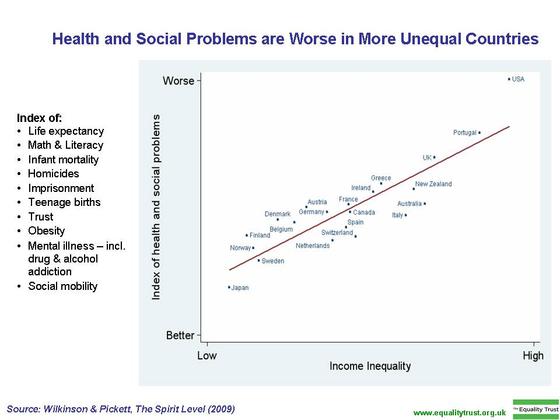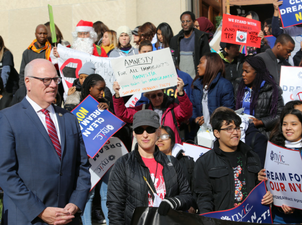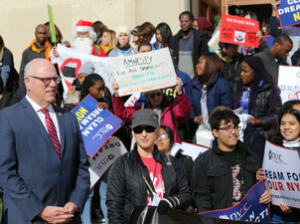
Wealth Gap Featured on Washington Post’s Front Page
Stephanie Niedringhaus
June 23, 2011
The front page of Sunday’s Washington Post (6/19/11) included another chilling article about growing disparities in our nation. Under the heading, “Breakaway Wealth; The Pay Bubble,” one article (“Income gap widens as executives prosper”) included information about how executive compensation rose sharply in recent years while the wealth gap also grew dramatically. During the 1950s and 1960s, it noted, executive pay was relative flat. The steep rise began in the 1970s.
The fact that executive pay was flat when companies were growing in the ‘50s and ‘60s shows that current excuses for excessive compensation – i.e., that executive salaries rise naturally when firms grow – are inaccurate.
Many of today’s executives enjoy luxurious lifestyles while millions of people struggle to put food on the table. According to the article, “The evolution of executive grandeur – from very comfortable to jet-setting – reflects one of the primary reasons that the gap between those with the highest incomes and everyone else is widening.”
Do you want to learn more? Check out the Washington Post.
And be sure to sign up for our Mind the Gap! campaign by clicking here. You can be part of the movement to address this injustice!











